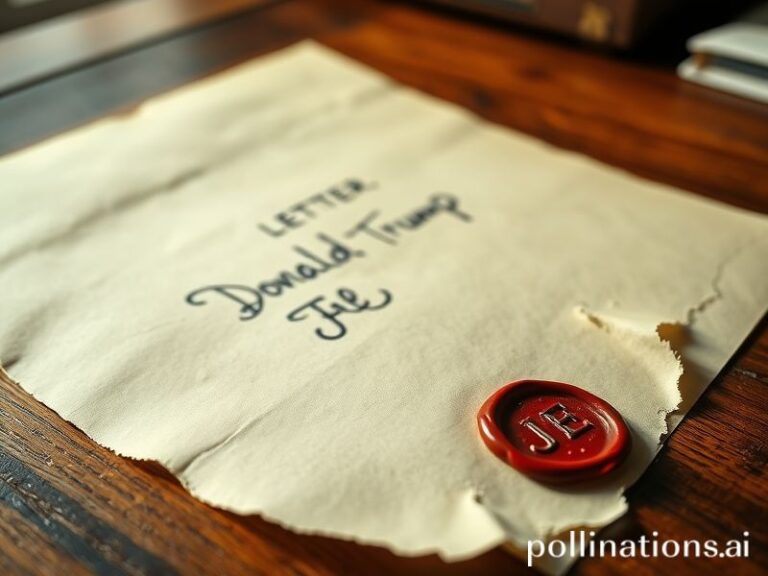How a Random D-backs Game Became the World’s Most Watched Distraction
By the time the Arizona Diamondbacks finished their latest act of baseball kabuki on Thursday night, the final score—7-3 over the San Francisco Giants—was already scrolling across ticker feeds in Singapore, popping up in Buenos Aires sports apps, and being auto-translated into seventeen languages nobody asked for. Somewhere in Kyiv a war-weary IT contractor glanced at the push alert between air-raid sirens and muttered, “Good for the snakes,” because even in a trench you still need a rooting interest that isn’t existential. That, dear reader, is the true global footprint of a mid-May D-backs game: a five-second serotonin bump for the planetary precariat.
Let’s zoom out before we drown in the minutiae of Corbin Carroll’s exit velocity. The Diamondbacks are owned by a billionaire hedge-fund baron whose fortune is staked on the same supply chains currently backing up outside Ho Chi Minh City. Their star rookie grew up in Seattle suburbs dreaming of Ichiro, learned Spanish from teammates in the Dominican summer league, and now endorses Japanese cleats stitched in Myanmar. The baseball itself is hand-sewn in a factory in Costa Rica where workers earn roughly the price of a Chase Field beer per dozen balls. So when Ketel Marte tomahawks one 420 feet into the swimming pool, remember: that splash is the sound of globalization cannonballing into chlorinated Americana.
Tonight’s tilt also doubled as a soft-power expo. The Giants’ lineup featured a Venezuelan catcher, a South Korean infielder, and a Canadian pitcher who throws 98 mph and apologizes after strikeouts. The Snakes countered with a Cuban defector on the mound, an Australian reliever nicknamed “Crocodile Outback,” and a mascot dressed like a bobcat on bath salts. If the United Nations had any sense of spectacle, they’d ditch the General Assembly and just schedule a double-header. At least then the veto comes via slider, not Security Council tantrum.
Meanwhile, the real action played out in the invisible economies orbiting the ballpark. DraftKings took micro-bets from Finland on whether the third inning would feature exactly two hits and a stolen base; a consortium of Shanghai data brokers scraped Statcast numbers to calibrate MLB NFT volatility; and in Lagos, a crypto-discord cohort livestreamed their attempts to arbitrage ticket-resale gas fees. All of this for a game that, by strict definition, is nine grown men in pajamas trying to run in a circle before a ball arrives. Humanity, you magnificent idiot.
Not to be outdone, geopolitics crashed the party like an uninvited cousin. The U.S. State Department used the seventh-inning stretch to test a new disinformation filter—something about flagging deepfake videos of mascots endorsing authoritarian regimes. The algorithm reportedly flagged the Phillie Phanatic as 63 percent probable dictator-curious, which feels generous. Down in the tunnels, a Giants coach grumbled about humidity affecting curveball spin; up in the broadcast booth, the color analyst blamed “El Niño,” because nothing says climate crisis like blaming the Pacific for a hanging breaking ball.
And yet, for all the satellite feeds and algorithmic froth, the evening distilled to one very old, very human transaction: strangers bonding over the shared delusion that 27 outs can be meaningfully arranged. The couple from Tucson who delayed their divorce filing to catch one last game together. The Nicaraguan Uber driver who circled the stadium three times just to hear the roar on the radio. The British tourist who Googled “What is a Diamondback?” and left understanding marginally less. Each of them invested real emotion in a franchise whose mascot is literally a venomous snake—proof that hope, like fangs, evolved for survival.
So when the lights dimmed and the last beach ball was confiscated by security, the D-backs improved to 27-23, two games back in the wild-card race. In cosmic terms, this matters about as much as a sneeze on the dark side of the moon. But for three hours, people in 112 countries paused their doom-scroll to watch a sphere fly over a fence, and for one merciful moment the algorithm served them joy instead of outrage. That’s the final score that never shows up on the box: Planet Earth 1, Collective Despair 0.







